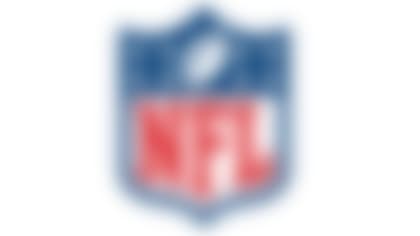PHOENIX, Ariz. -- What was once the sleepy home of the NBA's Phoenix Suns, the Fiesta Bowl and baseball's spring training has blossomed into a national sports capital.
This year's Super Bowl between the New England Patriots and New York Giants is the latest in a growing list of national sports events that have landed in the desert. And more are on the way as Phoenix contends with Los Angeles to become the West's top destination for major events.
"I think Phoenix is just growing into itself," said Jerry Colangelo, the former Phoenix Suns owner and Arizona Diamondbacks chairman. "On balance I think we have done an incredible job of coming from a small Western town into a major league market with an incredible array of events."
This represents a dramatic change from the last time Phoenix hosted the Super Bowl, at Tempe's Sun Devil Stadium in January 1996. Back then, some people wondered whether it was big enough to accommodate the event.
"In 1996, our question was, can we handle it?" said Mike Kennedy, a local lawyer and chairman of the Arizona's host committee. "Back then, we were selling one product -- the warmth."
They made the sale, and then some.
Since that time, the Phoenix area's population has exploded to 3.8 million, and Phoenix has become the nation's fifth-largest city, with 1.5 million residents. The growth has attracted an events boom as promoters cash in on Phoenix's mild winter weather, resorts and golf courses.
When it comes to sports, Phoenix is not just another pretty place.
"This is the destination," Diamondbacks President Derrick Hall said. "This is the place to be."
The Phoenix area now has four major professional sports franchises, two PGA Tour events, two NASCAR races, two major-college bowl games, an LPGA tour event and a marathon.
Last January, suburban Glendale hosted the first Bowl Championship Series title game, between Florida and Ohio State. Next February, the NBA All-Star Game comes to Phoenix.
Arizona also is home to 12 major-league baseball spring training camps, and that number will grow in 2009, when the Los Angeles Dodgers shift their base to Glendale from Florida.
"People are coming here from all over the country, and they're bringing their love of sports with them," Phoenix Mayor Phil Gordon said.
Gordon is typical of many transplants. A native of Chicago, he grew up rooting for the White Sox. Now he's a die-hard fan of two-time NBA MVP Steve Nash and the Suns.
Since 1996, cotton fields in Glendale have given way to the state-of-the-art, $455-million University of Phoenix Stadium, site of Sunday's Super Bowl. The stadium is across the street from Jobing.com Arena, home to the NHL's Phoenix Coyotes, who were still in Winnipeg the last time the Super Bowl was played in Arizona.
The new facilities have helped Phoenix catch up with Los Angeles as a Western sports-event destination.
Los Angeles' Coliseum has staged two Olympics, and the Coliseum and Rose Bowl have hosted the Super Bowl. But it's unlikely the game will return to the area unless it builds a new stadium or substantially upgrades its aging facilities. Stadium issues are a big reason Los Angeles has been unable to replace either of its two former NFL teams, the Raiders and the Rams.
"I think Phoenix has certainly gotten to the level of the way Los Angeles was in the past, but with newer facilities and equally enjoyable weather," said Hall, who worked for the Los Angeles Dodgers before joining the Diamondbacks.
Phoenix doesn't have L.A.'s beaches. But it has annexed two Los Angeles treasures - Matt Leinart and Wayne Gretzky.
Leinart, who grew up outside Los Angeles and won the Heisman Trophy at Southern California, plays for the Arizona Cardinals. Gretzky, a former Los Angeles Kings star, coaches the Phoenix Coyotes.
Phoenix officials balk at comparisons with their larger neighbor. They prefer to think like national players, because that's where the money is.
Last year's BCS title game generated $171.5 million, and the Fiesta Bowl generated another $115 million, according to an Arizona State University study.
The PGA's FBR Open, which is being held in Scottsdale this week, has produced an estimated $180 million. It's by far the Tour's most heavily attended tournament.
Then there's the Super Bowl, which could generate more than $400 million, said Mike Kennedy, chairman of the Arizona Super Bowl host committee.
The windfall may only be starting.
The area will stage the NCAA men's basketball regionals each of the next two years. Local promoters hope those events will help them lure an NCAA men's Final Four to University of Phoenix Stadium.
Meanwhile, the Diamondbacks are campaigning for the 2011 All-Star Game to be played at Chase Field.
"Maybe it's a Western spirit of wanting to get as many events as possible," Colangelo said. "I think we have a lot to sell."
The growth has presented challenges. Traffic can be a nightmare, and officials are concerned about oversaturating the market for sports, especially during a housing slump, when many sports fans are reining in their spending.
"I think we're trying to figure out what our appetite is and how much we can handle," Kennedy said. "But I don't see any reason why we can't continue to try to grow and take on more. As we continue to attract these events and show we can do a good job, they're going to keep coming."
Copyright 2008 by The Associated Press



